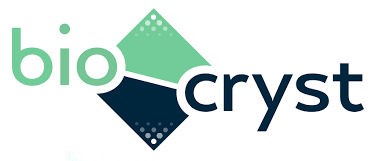
BioCryst Stops COVID-19 Work to Target Other Viral R&D

BioCryst Pharmaceuticals is developing its drug galidesivir as a potential treatment for more than 20 RNA viruses. But SARS-CoV-2, the virus that causes COVID-19, will no longer be one of them.
The Durham company has reported early stage clinical trial results showing that treatment with the experimental antiviral offered COVID-19 patients no benefit compared to a placebo. The study wasn’t designed to demonstrate clinical efficacy, and small Phase 1 clinical trials typically enroll healthy volunteers to assess a drug’s safety before testing the drug on sick patients. Galidesivir achieved the safety measure with no serious problems associated with the drug.
Nevertheless, the BioCryst study, funded by the National Institute of Allergy and Infectious Diseases (NIAID), failed to provide signs that the drug could treat COVID-19 infection. The Phase 1 study enrolled 24 adults who were hospitalized with moderate-to-severe COVID-19. That sample size of patients isn’t large enough to demonstrate efficacy but when early stage studies do enroll sick patients, a drug is expected to show some indication that it’s working, to justify a larger study designed to assess patient benefit. Absent that efficacy signal in the early study, BioCryst decided against further development of the antiviral in COVID-19.
Galidesivir is a broad-spectrum antiviral designed to block RNA polymerase, a key viral enzyme. Prior to the current pandemic, BioCryst was developing its intravenously administered drug as a potential treatment for serious viral pathogens including Ebola, Marburg, Yellow Fever, and Zika. The company says its drug has also shown a broad spectrum of activity against more than 20 RNA viruses, including coronaviruses.
The activity of galidesivir against coronaviruses in lab tests led BioCryst to proceed with clinical testing in COVID-19, which is also caused by a coronavirus. The biotech has positioned its drug as a potential treatment for viruses that threaten national health and security. In August, the NIAID awarded BioCryst a $44 million contract for manufacturing its antiviral and testing it in clinical trials. The agency also added nearly $3 million more to support the completion of a two-part clinical trial in Brazil evaluating galidesivir in COVID-19 patients.
The results announced last week were for Part 1 of the study. In addition to the main goal of assessing safety, the study’s secondary goals included evaluating the effect of galidesivir on the course of COVID-19 disease, as well as its effect on the infection in the respiratory tract. BioCryst reported that treatment with its drug was associated with a more rapid decline in viral RNA levels in the respiratory tract, the pace of decline dependent on the dose given.
The study was also intended to identify the best dose to test in Part 2, which would have evaluated up to 42 hospitalized COVID-19 patients. The drug’s failure to show signs of efficacy against COVID-19 in Part 1 of the study means that the drug won’t advance to Part 2. However, the study’s safety results – the first human data for galidesivir – are still important for the continued development of the drug against other viral pathogens. BioCryst said that based on its discussions with the NIAID, it expects the agency to continue its support of its drug as a treatment for biodefense threats such as Marburg virus.
“We are encouraged by the first patient data with galidesivir and the growing body of evidence that galidesivir could be an important broad-spectrum antiviral,” BioCryst CEO Jon Stonehouse said in a prepared statement. “We appreciate the government’s continued investment to investigate galidesivir as a biodefense drug,”
BioCryst has two FDA-approved products. The first, influenza drug peramivir, is an antiviral whose rights were licensed to Australian company CSL Limited in 2015. CSL is the parent company of Seqirus, the world’s second-largest influenza vaccine company, which has a massive manufacturing facility in Holly Springs.
BioCryst won its second FDA approval earlier this month in a decision covering berotralstat, a pill developed to treat the rare enzyme disorder hereditary angioedema.
